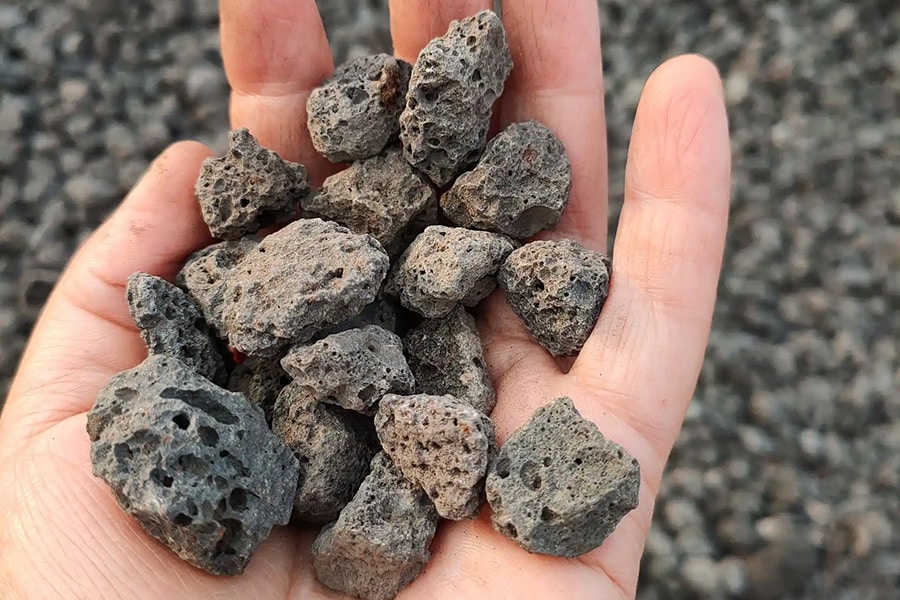Ground Granulated Blast Furnace Slag (GGBFS) is a key material in modern concrete production, celebrated for its ability to enhance performance, durability, and sustainability. Derived from the byproducts of iron production, GGBFS is a finely ground powder that reacts with calcium hydroxide in the presence of water to form compounds that improve concrete’s strength and durability. Its use as a supplementary cementitious material (SCM) is a testament to its versatility and value in the construction industry.
The Role of GGBFS in Concrete
In concrete, GGBFS serves as a partial replacement for Portland cement. When combined with cement, GGBFS participates in hydration reactions, producing calcium silicate hydrates (C-S-H), which enhance the strength and durability of the concrete matrix.
This dual role as a strength contributor and a durability enhancer makes GGBFS indispensable in various applications. By replacing a portion of Portland cement, GGBFS reduces the environmental impact of concrete production while improving performance in aggressive environments, such as marine settings or industrial zones.
Understanding GGBFS Grades in Concrete
The classification of GGBFS into grades—Grade 80, Grade 100, and Grade 120—defines its reactivity and performance in concrete. These grades are established by standards such as ASTM C989, ensuring consistent quality and performance.
Grade 80 GGBFS
Grade 80 is the least reactive grade of GGBFS, often used in mass concrete structures where controlling heat generation is critical. The lower reactivity of Grade 80 slows down the hydration process, reducing the heat of hydration and minimizing thermal cracking. This makes it an excellent choice for large-scale pours in projects such as dams, foundations, and retaining walls.
Grade 100 GGBFS
Grade 100 represents a balanced option with moderate reactivity, making it ideal for general-purpose concrete. It offers a good combination of strength, durability, and workability, making it suitable for a wide range of applications, from residential buildings to commercial infrastructure.
Grade 120 GGBFS
Grade 120 is the most reactive grade of GGBFS, known for its ability to achieve high early strength and exceptional resistance to aggressive environmental conditions. This grade is preferred in high-performance concrete used in marine structures, industrial floors, and precast elements where durability and strength are paramount.
Benefits of Using GGBFS in Concrete
The inclusion of GGBFS in concrete provides numerous benefits, transforming traditional concrete into a high-performance material.
- One of the most significant advantages is improved durability. GGBFS reduces the permeability of concrete, making it more resistant to sulfate attack, chloride ingress, and alkali-silica reactions. This makes it an ideal choice for structures exposed to harsh environmental conditions, such as marine piers, sewage treatment plants, and chemical storage facilities.
- Another key benefit is the reduction of the heat of hydration. This property is particularly important in mass concrete applications, where excessive heat buildup can lead to thermal cracking. GGBFS helps to control this heat, ensuring the structural integrity of large-scale projects.
- In terms of sustainability, GGBFS is a game-changer. By partially replacing clinker in cement, it significantly reduces carbon dioxide emissions associated with concrete production. Additionally, it promotes the recycling of industrial byproducts, contributing to a circular economy and reducing waste sent to landfills.
Applications of GGBFS – Enhanced Concrete
GGBFS-enhanced concrete is widely used across various sectors of the construction industry, thanks to its versatile performance.
In marine construction, the ability of GGBFS to resist chloride-induced corrosion is invaluable. Structures such as bridges, piers, and seawalls last longer and require less maintenance when built with GGBFS-enhanced concrete.
For industrial floors and pavements, GGBFS provides superior wear resistance and durability, ensuring these surfaces can withstand heavy loads and abrasive conditions. Its use in airport runways and highways demonstrates its strength and resilience.
Massive infrastructure projects, such as dams and power plants, also benefit from the thermal advantages of GGBFS. By controlling the heat of hydration, these projects can avoid the development of cracks that compromise long-term stability.
In precast concrete manufacturing, GGBFS improves the quality and finish of products such as beams, panels, and columns. Its ability to enhance workability and reduce porosity ensures that precast elements meet stringent performance requirements.
Why Choose Henan Superior Abrasives for GGBFS in Concrete?
Henan Superior Abrasives (HSA) is a leading supplier of high-quality GGBFS that meets the needs of modern construction. With a commitment to innovation and sustainability, HSA offers all three grades—Grade 80, Grade 100, and Grade 120—ensuring that we can meet the diverse requirements of our clients.
Our GGBFS is produced under strict quality control standards, ensuring consistent performance in concrete applications. Whether you are working on a massive infrastructure project, marine construction, or general-purpose concrete, HSA is your trusted partner for GGBFS solutions.
Contact us today to learn more about our products and how they can transform your next construction project.
- Email: sales@superior-abrasives.com
- WhatsApp: +86-18638638803





